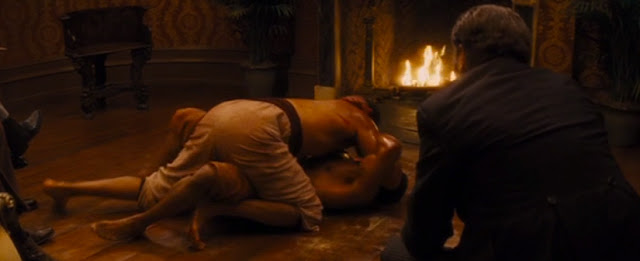In The Daily Show's argument between Jon Stewart and Bill O'Reilly about Muslim terrorism there are a various rhetorical fouls. One of them is seen when O'Reilly employs innuendo, a suggestive form of humiliation, to "gain the upper hand" (p.167) on Stewart when he asks Stewart if he is going to the Middle East to set up an exchange program. O'Riley knows that Stewart is not going to set up any program in the Middle East and that he is not involved with any terrorist, but he is suggesting that Stewart is sympathetic with terrorism. The argument then becomes inarguable and in a failed attempt to save it Stewart plays on with O'Reilly's bantering by giving him reason. Proving Heinrich's point, this type of humiliation makes impossible any type of consensus or determination so the argument end's up with O-Reilly shoving his arguments jokes on Stewart and appearing to be stronger and decisive. Needless to say, this technique is not utter stupidity. These were not gratuitous insults, instead they were suggestive comments in a non-stop rhythm.
In Stewart and O'Reilly's argument rhetorical virtue is also present. O'Reilly loses his virtuosity when he drifts of with the extreme choices he proposes to Stewart. By saying that if Stewart was sincere and cared for the Muslim community he would have a Muslim replace him when he was away, O'Reilly lies in the extreme and not the mean. In Aristotelean virtue it is ideal to propose the extremes and then stick to the in-between, not being too reckless or too careful for example. What O'Reilly proposes to Stewart in order to mock him is extreme right from the beginning. Of course, this is satire, where that lack of virtue is the spotlight.
There could be a variety of ways for the argument to get serious as Heinrichs would probably want, but that is not the point. Insisting, one could say that more aristotelean arguing could have occurred if instead of bantering O'Reilly had questioned Stewart's absence and then asked what would be of the show without him. There, when he switches to future tense, he would deal with the specific problem or choice. That would be serious arguing. Yet, The Daily Show mocks news with a very ironic and witty humor that builds with great pathos. One that arguers should make note of

